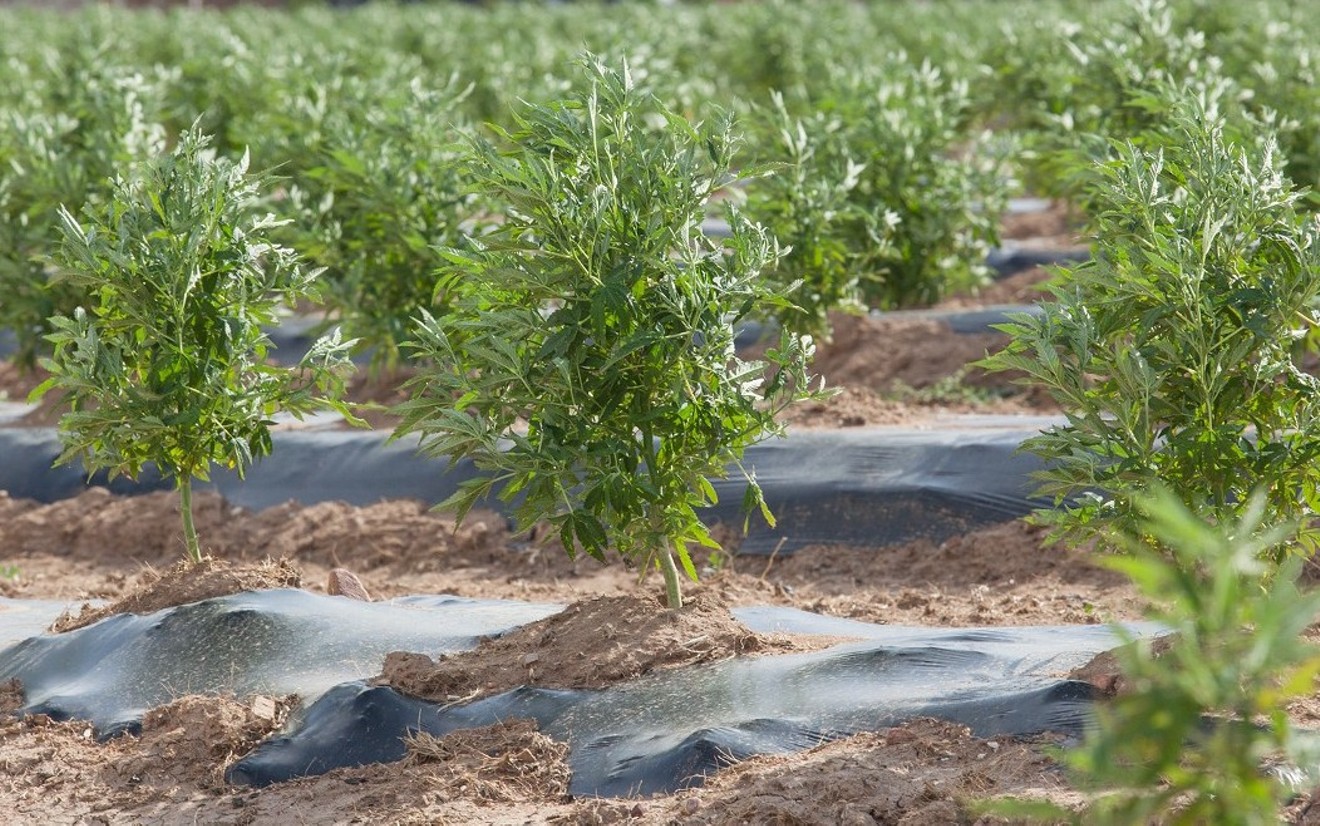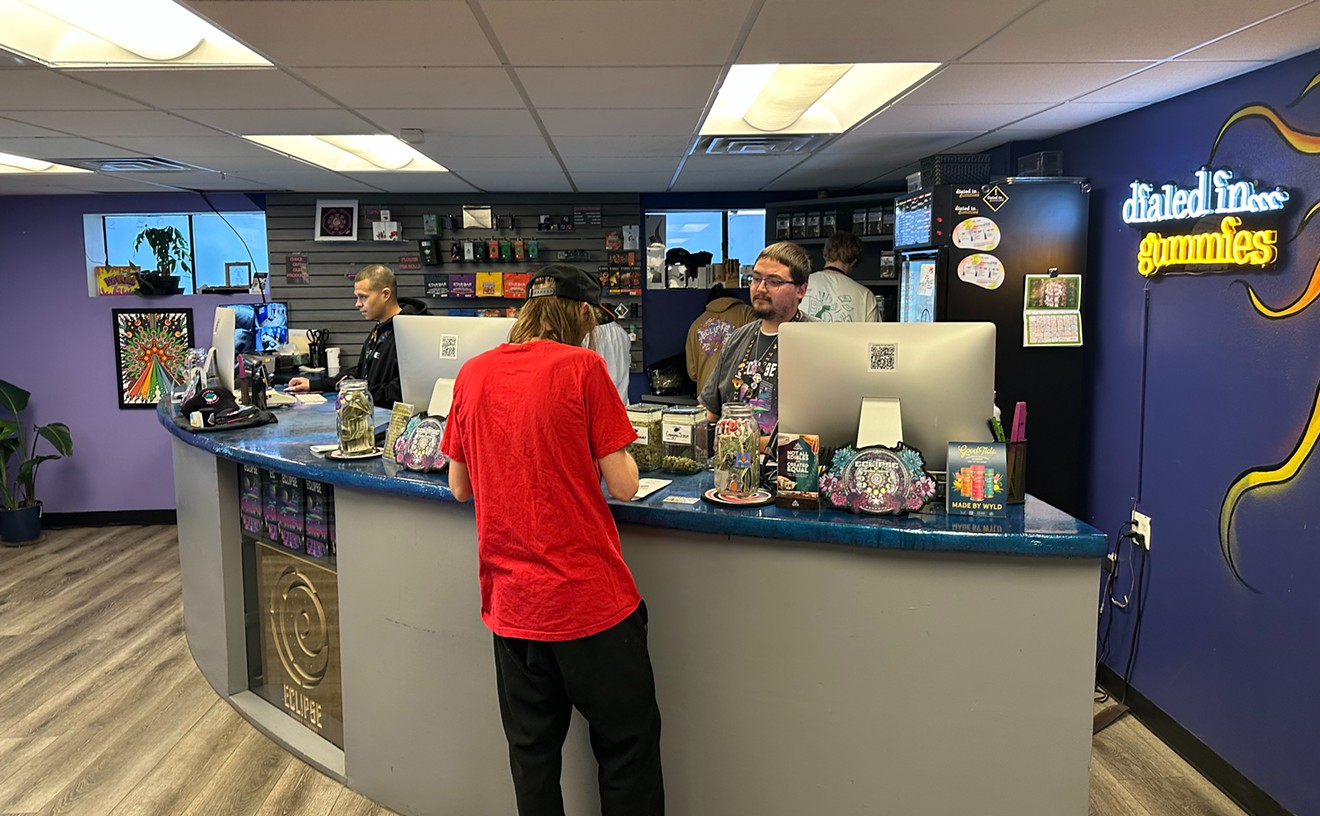When the federal government legalized hemp in late 2018, stakeholders in Colorado's hemp industry — legalized and steadily growing at the state level since 2014 — were cautiously optimistic. As part of the new federal program, the U.S. Department of Agriculture asked for the states to send in any proposed variations to USDA regulations, and the Colorado Department of Agriculture submitted its plan in June.
Hemp farmers here want less restrictive rules than the USDA is proposing, and have criticized the Drug Enforcement Administration's involvement in THC potency testing as well as its requirement that any hemp that tests for over 0.3 percent THC be destroyed; they were also worried about unclear language regarding where hemp will be stored between harvest and testing, and the prospect of having just fifteen days to harvest and test their crops. The CDA listened to their concerns and took them into account when drafting Colorado's hemp plan. But earlier this month, the USDA rejected that first draft; it's currently negotiating revisions with CDA officials.
To learn more about the effect that a new hemp plan could have on Colorado hemp farming, products and the CBD industry, we talked with Bethleen McCall, a hemp farmer in Yuma County.
Westword: What were your first thoughts when you heard that the USDA didn't approve of Colorado's first try at hemp rules?
Bethleen McCall: I wasn't surprised at all. Disappointed, but not surprised.
Which areas of the plan are you most concerned about when the term "revisions" comes up?
Our main concern is always the total THC, instead of Delta-9, that's a given. They didn't even raise the amount when they decided to incorporate other cannabinoids that could bump that total. And the fifteen-day testing window — that's great for a small state, but for Colorado, that's not realistic at all. The requirement to use DEA-certified labs is also concerning, because there are very few of them nationwide, even with a recent expansion. There's just no way that those samples can be processed that quickly with the harvest taking place within that time frame. I understand why you'd want that from a regulatory standpoint, because that would be the most accurate picture, but we're farming in reality. We have freezes and other kinds of things to deal with in addition to weather.
Colorado's hemp landscape is more evolved than most states. How do you think that has affected the back-and-forth with the state and USDA?
I would think the USDA would want to look toward states that have really robust regulatory systems, like what Colorado has developed. In my opinion, the state has done very well to get the state started with hemp. As a farmer, of course, I'd like to see more leniency in a lot of places, because no one is growing this crop to get people high; we have another regulatory system for that here. I think the USDA should listen more to states with these [hemp] programs that have been operating for six years now.
How do these rules affect the rest of the hemp supply chain, like hemp fiber products and CBD?
The danger of growing a non-compliant crop and not getting to harvest, essentially. So if farmers are found to be non-compliant, they'll have to destroy their crops, and they're out of everything. That absolutely impacts supply for extraction purposes, the seed and grain sides and building materials.
The reason we're not seeing a lot of large-scale companies get into the hemp industry right now is because even though we've grown by leaps and bounds, a General Mills wanting to incorporate hemp flower in their bread would need thousands of acres to supply that, and we just can't scale to that level right now. One of those reasons is compliance, with bank lending being another issue. No other farms are expected to pay for everything 100 percent up front, like we have to do from the beginning. We can't ensure a supply to a large corporation, so they're not going to take that leap to get into a new industry. They're successful because they're strategic and conservative with their money.
How has 2020 been to hemp? Has it lived up to its promise?
We were very disappointed that the USDA has continued to leave the hemp industry off the Coronavirus Food Assistance Program, which makes us demonstrate a 5 percent or more loss from January through April. They say the hemp industry didn't have that, but PanX, a premier price index for hemp, shows at that time we had a 21 to 32 percent price drop. Congress said, "Let's make hemp legal and get people growing it," and then the USDA turns around to set the industry up for failure.
The USDA is not giving us the assistance that we're entitled to, and people have had to lay off employees and drop production because of those lower market prices. It's not all attributed to COVID-19. It's difficult in a market like ours, which is very much in flux and hasn't hit a baseline number yet. It's been very tough on rural communities, as well. In my county, we once had a dozen hemp farms employing over 150 people. With the market price drop, now people are out of work or forced to make minimum wage. Warehouses that were becoming hemp production facilities are now going vacant again.
What happens to farmers if the USDA doesn't accept Colorado's plan?
The federal mandate right now is for the program to go into effect November 1 or October 31. If Colorado's plan is not accepted by the USDA, the USDA could tell Colorado to try again, or Colorado could tell the USDA that we can't meet their requirements because they're unrealistic and bad for the industry. That's what New York State has recently done. If that happens, the onus would be on the USDA to come in and regulate the growers within that state, so the USDA would handle registration, testing and other protocols.
[
{
"name": "Air - MediumRectangle - Inline Content - Mobile Display Size",
"component": "12017618",
"insertPoint": "2",
"requiredCountToDisplay": "2"
},{
"name": "Editor Picks",
"component": "17242653",
"insertPoint": "4",
"requiredCountToDisplay": "1"
},{
"name": "Inline Links",
"component": "18838239",
"insertPoint": "8th",
"startingPoint": 8,
"requiredCountToDisplay": "7",
"maxInsertions": 25
},{
"name": "Air - MediumRectangle - Combo - Inline Content",
"component": "17261320",
"insertPoint": "8th",
"startingPoint": 8,
"requiredCountToDisplay": "7",
"maxInsertions": 25
},{
"name": "Inline Links",
"component": "18838239",
"insertPoint": "8th",
"startingPoint": 12,
"requiredCountToDisplay": "11",
"maxInsertions": 25
},{
"name": "Air - Leaderboard Tower - Combo - Inline Content",
"component": "17261321",
"insertPoint": "8th",
"startingPoint": 12,
"requiredCountToDisplay": "11",
"maxInsertions": 25
}
]












